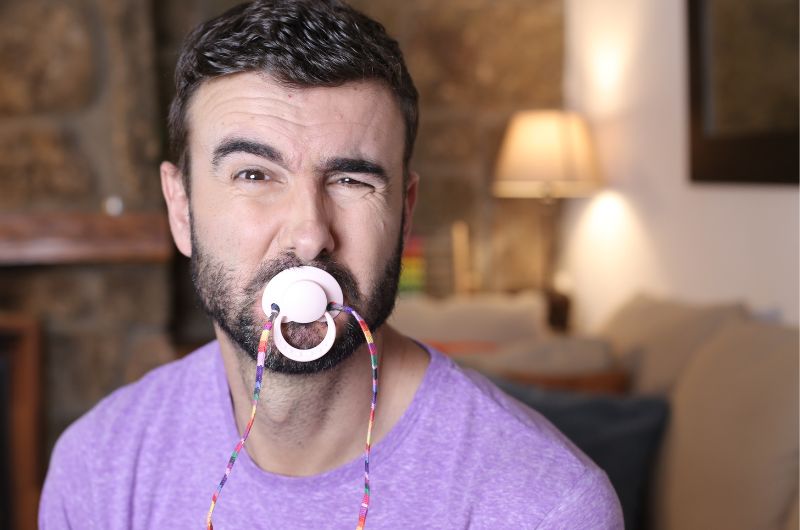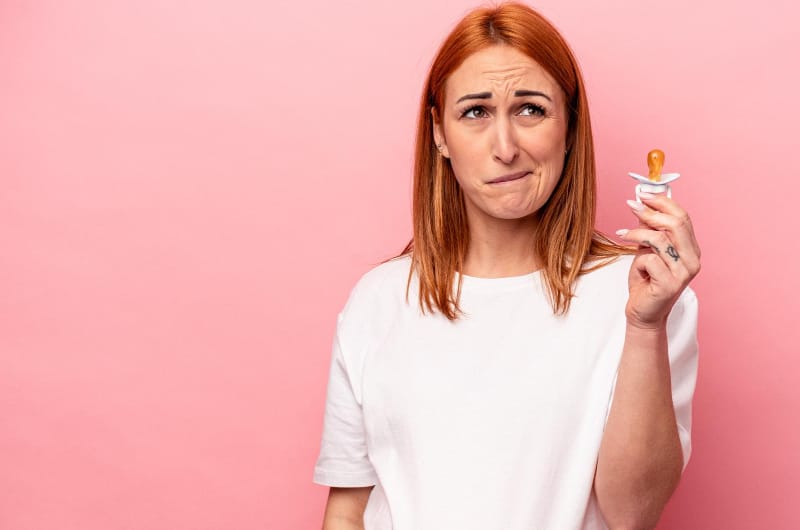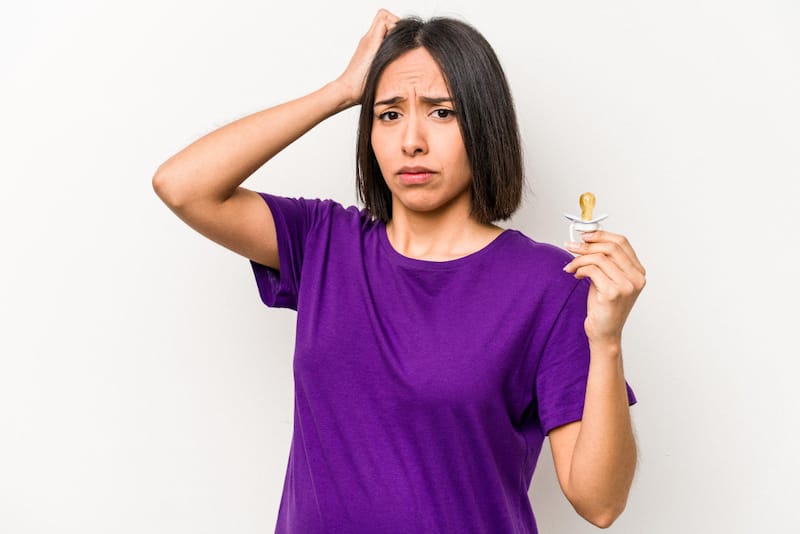There is a conflicting discussion about adult pacifiers.
Some are good, while others are not so much. Ultimately, it is being used exactly how babies use them, for soothing. Only now, adult users tend to receive more consequences, and bad side effects both in social and physical aspects.
Adult pacifiers could help with your anxiety, but professionals suggest that you still do long-term treatment since the pacifier is only a temporary fix.
Medical use of the adult pacifier
1. Soothing
It’s not a far shot to think that a pacifier would still provide the same soothing effect that it gives babies as it would to adults.

After all, we all have some aspects in us that were underdeveloped even as we turned into adults.
It does, in fact, decrease anxiety by meeting the need for oral stimulation, but according to a psychologist in Los Angeles, CA, Gregory Cason, Ph.D, the relief that pacifiers provide for adults doesn’t soothe overall anxiety, and if you are not getting long-term treatment symptoms could get worst.
2. Sleeping
The need for good sleep has been increasing over the years, and it is just getting higher.
People realize the importance of rest and the amount our body needs to perform our basic daily activities.
It is also getting harder and harder to get the essential sleep needed for different reasons.
Some people use the soothing effect of adult pacifiers to get themselves to sleep, while others do whatever it takes to get the rest they need.
Some are even going beyond just pacifiers and are using a baby bottle to drink their nighttime milk and put themselves to sleep, exactly how babies do.
3. Temporary replacement
Some people trying to quit an addiction like cigarettes use adult pacifiers to gradually train their mind and body to get rid of the actual consumption but still get oral stimulation.
Again this is a temporary resolution, and not enough studies have been done to prove its effectiveness, but people are trying to do things that they feel are effective for them.
Other side effects of adult pacifiers

- Dental problems – Extended and excessive use of pacifiers for both babies and adults could cause misalignment of the teeth and affect your overall gum health. It is almost similar to the adverse effects of extended thumb sucking, which include oral infections and teeth misalignments such as open bite, overbite, buck teeth, and changes to the roof of the mouth. Many other problems come from dental issues, which could have been avoidable, but breaking the habit of using a pacifier or sucking one’s thumb is sometimes hard to break.
- Speech problems – The misalignment of the jaw and the pushed placement of the teeth could cause communication problems because it will be harder to pronounce and speak some of the words and even construct a whole sentence without struggling.
- Bacterial problems – Using pacifiers could also lead to some skin problems around the mouth over time. An irritation might build up and lead to more severe problems due to infection. Any type of pacifier is prone to gathering bacteria no matter how much washing and sanitizing you do simply because of how it is used.
- Negative social reputation – Over the past few years, adult pacifiers have gained a negative reputation because some people use them mainly for substance abuse and personal fetish. Yes, this is the reality that we are living in right now, and some people indeed use it for those purposes, but this is starting to be a problem for those with medical conditions who are actually using adult pacifiers to get and feel better. Because now, without even asking them personally, people around them could judge them for using it for the wrong reasons, which is unfair and should now be happening, but it is.
- Temporary fix – Professionals agree that adult pacifiers could help minimize your anxiety but recommend that on top of using the pacifier, they still undergo treatments for a long-term solution. They believe that being dependent on a temporary stimulant could create more problems than fixing them.
FAQs
Why do pacifiers calm me down?
A pacifier might relieve tension and help you relax, but the effect is only temporary. To achieve long-term relief, you could try behavioral therapy, medications, or a combination of both.
You can also try art therapy to help with anxiety.
Talk to your healthcare provider to get the best advice proven to work from previous studies.
How do I stop pacifier addiction?
Different ways work for different people.
Some throw the pacifier away and find other alternatives along the way until they no longer need to soothe using oral stimulation, while others try to identify the triggers in their day-to-day life that prompt them to use the pacifier.
Anticipating when the behavior occurs may help reduce it by giving you time to substitute stress-relieving techniques, such as deep breathing, meditation, and exercise.
Conclusion
Different people go through different life situations, and we all have different ways of coping and trying to survive challenging times.
I feel like it is only fair that we acknowledge those differences and be more open and kind to those who are already struggling. Mental health is as important as physical health, if not more.
If you or someone you know is going through a hard time and you feel like you need help, you can call 988 Lifeline, which works across the United States.


